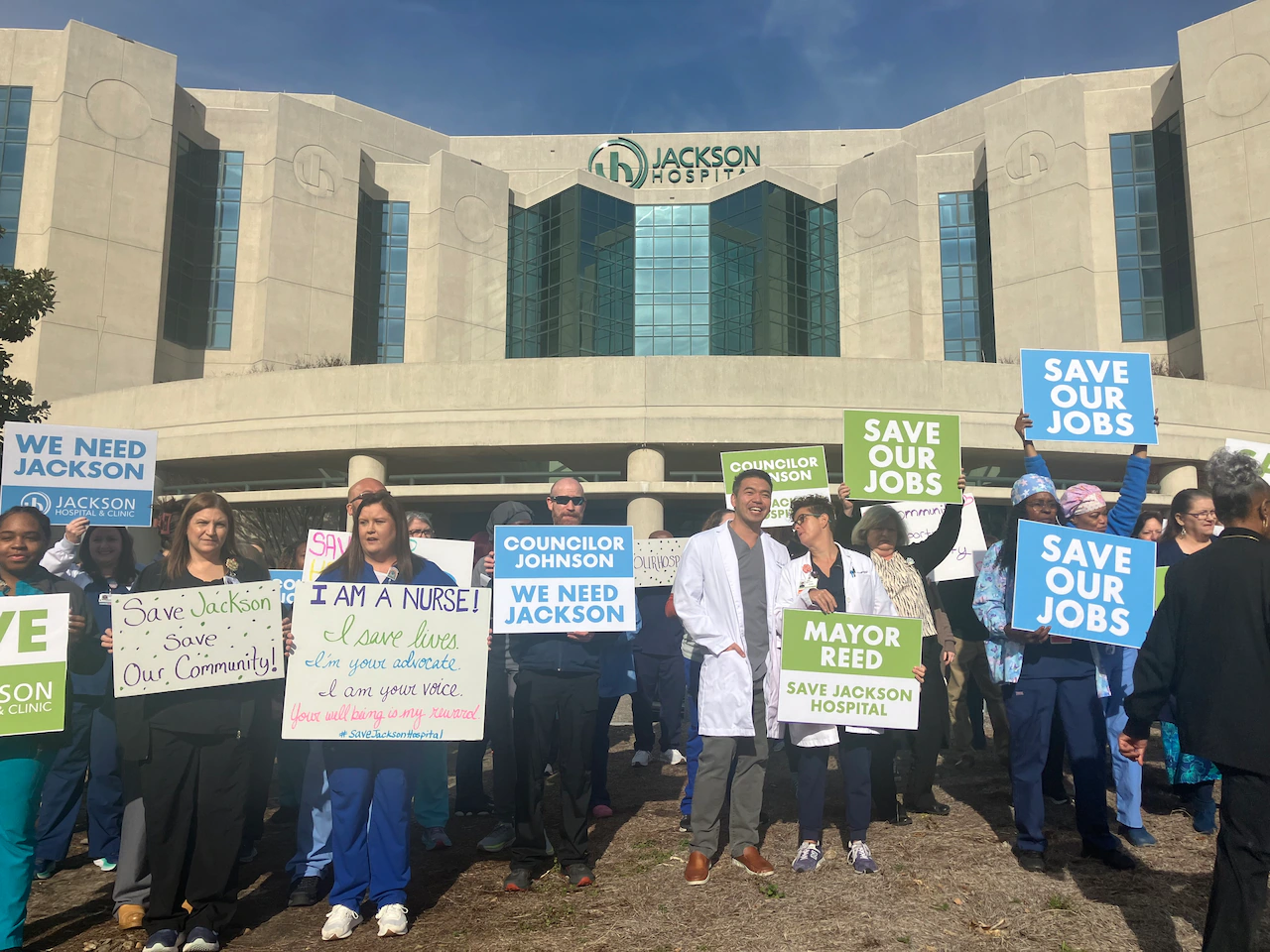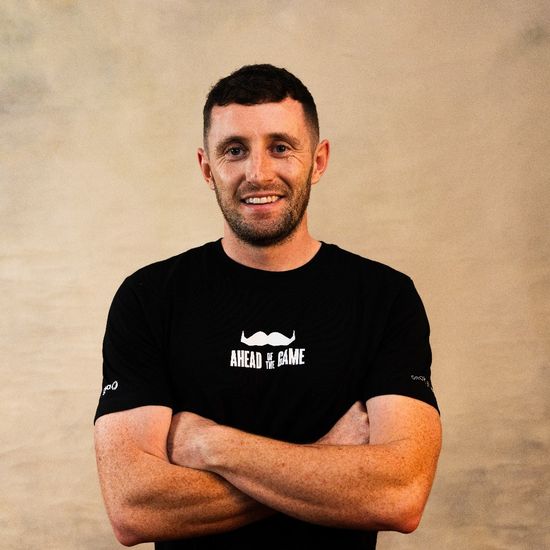Copyright AL.com

This is a guest opinion column Montgomery can’t afford to lose Jackson Hospital Not the families who rely on its emergency department in the middle of the night. Not the 2,200 people whose livelihoods depend on its payroll. Not the small businesses that orbit a major medical center. And certainly not the patients who already face long wait times and limited options when minutes matter.So why is Jackson Healthcare doing everything we can to help save a hospital that isn’t ours? Because this community matters. Because access to care is a promise—not a suggestion. And because when a crucial institution is on the brink, those with the capacity to help have a responsibility to step forward. Our roots in healthcare Jackson Healthcare has served Jackson Hospital, providing clinical staffing for more than 15 years and Baptist Hospital for more than 20. We know this market, its clinical strengths, its workforce gaps, and the pressure points that make operating a hospital here uniquely challenging. Long before that, in 1979, I personally recruited more than 50 physicians to Alabama to staff state mental health and clinic positions during a period of acute shortage. This was an experience that forever shaped my belief that access to physicians is the foundation of a healthy community. Over just the last five years, our nursing division has supplied an average of 100 travel nurses per month to Jackson Hospital to keep patient care running. These aren’t abstract statistics to us; they’re names, faces, and shifts covered so patients could be seen and receive care. When the call came In February 2025, Jackson Hospital filed for Chapter 11. At filing, Jackson Healthcare was the hospital’s largest unsecured creditor—approximately $10 million. We called immediately—not to demand payment, but to ask how we could help the hospital make it through. We offered two concrete steps. First, our parent company, Jackson Investment Group, provided a $25 million DIP (debtor-in-possession) loan, so the hospital could stabilize, continue care, and have a chance to sell or reorganize. Second, we agreed to explore whether we could be a buyer of the hospital if that path offered the best outcome for patients and the community.From the outset, we kept State leaders informed. Early in the process, we met with the Governor and her team. Their message was clear: Jackson Hospital must remain open. We agreed, and we went to work. What we learned—and what it would take We deployed more than a dozen seasoned professionals for four months to perform a deep due diligence and craft a turnaround plan. The truth was sobering. Between essential infrastructure repairs, payer contracts that paid materially below peer rates, and operational resets that would take time and capital to execute, we estimated the hospital needed on the order of $250–$300 million to return to sustainable health.On June 20, 2025, we shared our candid assessment with the Governor’s office. We could not justify that scale of investment, and we did not believe any other private party would bid. That was not a retreat from the mission—it was an honest statement about the constraints of private capital when the math does not and cannot work.Two weeks later, the State called with a question: Could a public-private solution work if the State, County, and City contributed significant grant funding? We said possibly—if it was part of a comprehensive plan that aligned all stakeholders and put the hospital on a credible path to long-term viability. A plan built around patients, sustainability, and accountability We drafted and presented that plan to local leaders and briefed City, County, State and Federal representatives. The framework was straightforward: Public partners would provide a total of $100 million in grants held in escrow until a confirmed bankruptcy plan, ensuring funds went to patient-facing recovery rather than to lenders (including us). Medicaid operational considerations and targeted tax abatements would reduce structural cost and cash-flow pressure. Commercial payers would align reimbursement closer to what peer hospitals receive for the same care, closing a fairness gap that has undermined the hospital’s economics. In response, we would increase our existing $25 million financing commitment up to $75 million to fund critical infrastructure and operational changes—but only if the $100 million grant pool came together and commercial rates improved substantially to make the full plan viable. Local leaders expressed support for the framework. More recently, the State, County, and City indicated they can collectively commit $50 million at this stage. We are grateful—and we’ve been clear that the balance is still needed to file a confirmable plan of reorganization that doesn’t simply postpone insolvency, but ends it.The public dollars would remain protected in escrow until bankruptcy plan approval, and none of those funds would be used to pay any lender—including us. That was a community safeguard we supported from the start. Just as importantly, the plan requires a renewed governance foundation: beginning November 1, 2025, a proven board and leadership team—vetted with State and local partners—will take operational responsibility. Accountability and execution are non-negotiable. Why we’re doing this—our “why” We call our approach venture philanthropy: we deploy capabilities and capital to solve structural problems in healthcare that traditional philanthropy or market-rate capital alone can’t fix. We don’t seek profit from this work; we seek outcomes—open doors, staffed beds, shorter waits, and lives saved.Why Jackson Healthcare? Because if not us, who? No one else has stepped forward with the combination of operating “know-how;” workforce resources; balance-sheet support; and partnership approach working with the State, County and City to give this hospital a real shot. The other reason? This isn’t just about a facility—it’s about a mission. Ours is to improve the delivery of patient care and the lives of everyone we touch—and doing our part to help Jackson Hospital recover and ultimately thrive is in full alignment. We believe deeply that without margin, there is no mission, even for a nonprofit. “Nonprofit” should describe a tax status, not an operating discipline. Jackson Hospital will remain a nonprofit, and it must be run with the rigor of a best-in-class for-profit, so it can fund its mission; attract and retain top physicians, nurses, technicians and more; and invest in quality and access.We also believe we are stewards of the blessings we did not create alone. Our company has been blessed by God with people, expertise, and resources. Stewardship means using them to serve others—especially where the need is urgent and the stakes are high. That’s Montgomery, today. What it will take now Saving Jackson Hospital will not be easy. It will take the remaining public dollars to complete the grant pool. It will take aligned partners—the State, County, City, payers, clinicians, and the new leadership team—all pulling in the same direction. It will take tough choices and transparent metrics so the community can see progress, month by month. And it will take a shared commitment to fairness in reimbursement so Jackson Hospital isn’t asked to deliver the same care as its peers for materially less.With those pieces in place, we believe that Jackson Hospital not only survives—it stabilizes, rebuilds, and ultimately thrives as a modern regional hospital that Montgomery can count on. A request to our community To the people of Montgomery: work with us. Encourage local leaders as they finalize the remaining grant funds. Support the clinicians and staff who have kept care going under extraordinary strain. And please, pray for wisdom for everyone involved—public officials, hospital leaders, hospital staff and our team—as we take the next faithful steps.This is hard work. It is also good work. And it is worth doing—because your lives, your families, and your future are worth it.



